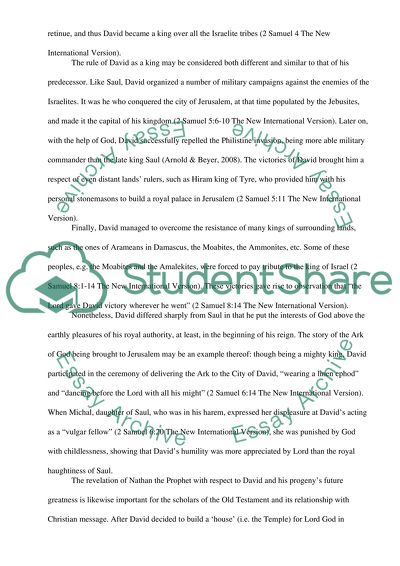The Davidic Kingdom Essay Example | Topics and Well Written Essays - 750 words. Retrieved from https://studentshare.org/religion-and-theology/1456397-the-davidic-kingdom
The Davidic Kingdom Essay Example | Topics and Well Written Essays - 750 Words. https://studentshare.org/religion-and-theology/1456397-the-davidic-kingdom.


